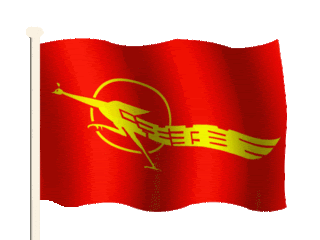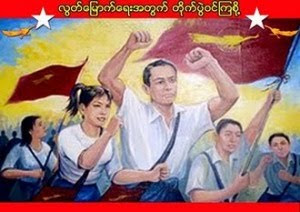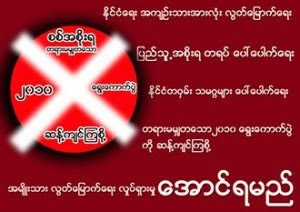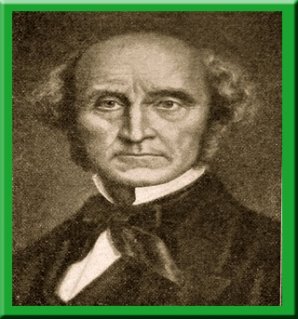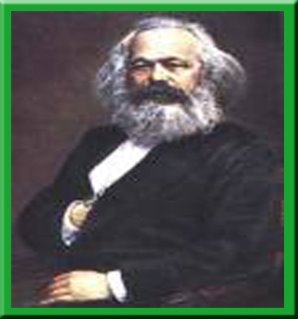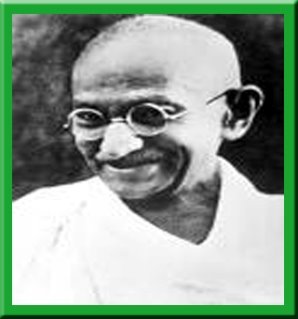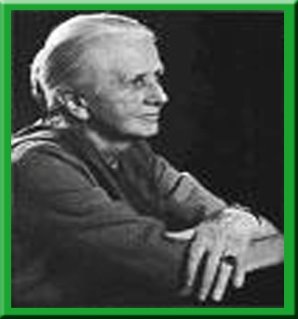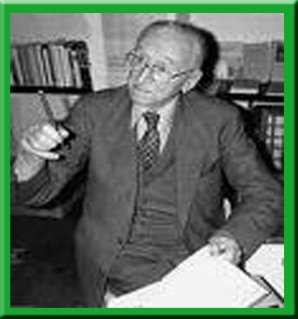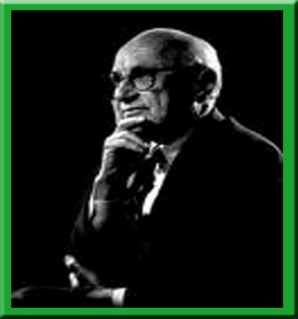In recent years, the so-called Third Group of Burma appeared by denouncing sanctions and put forward the idea that the people of Burma are the victims of sanctions and the power struggle between the military regime and opposition groups. They then call themselves as the Third Group of Burma. Here, I would like to analyze some of the democratic theories and development perspectives to identify whether this group is a genuine scholars group working for development and democratic consolidation of Burma or a puppet group of the military regime.
In his work of Politics, Aristotle described democratization as a perversion. However, it does not offer a casual theory sufficient to specify the process. A political process analysis of democratization can be defined as movement towards broad and equal citizenship, binding consultation of citizens, and protection of citizens from arbitrary state action. (Tilly, 2000:1)
Collier, Levistsky and Dawisha (1997) also categorized democratization into three criteria as
substantive criteria emphasizing qualities if human experiences and social relations;
constitutional criteria emphasizing legal proceedings such as elections and referenda and
political process criteria emphasizing inter-actions among politically constituted actors.
substantive criteria emphasizing qualities if human experiences and social relations;
constitutional criteria emphasizing legal proceedings such as elections and referenda and
political process criteria emphasizing inter-actions among politically constituted actors.
These inter-actions can be then distinguished into agents of government, polity members (constituted political actors enjoying routine access to government agents and resources), challengers (constitutional political actors lacking that routine access), subjects (persons and groups not currently organized into constituted political order) and outside political actor, including other governments. (Tilly, 2000:13) In fact, these inter-actions are required for a successful democratization. By looking through these inter-actions, it can be clearly stated that Third Group of Burma does not play in any forms of these political actors.
In addition, Third Group members claimed that democratization was delayed by the confrontation approach of the opposition so that they have to work together with the military regime. The most visible democracy-promoting mechanisms throughout the history include conquest, confrontation and revolution. Conquest is the forcible reorganization by using external power. While existing regimes responded to challenges by political actors that promote democratization, confrontation is the best mechanism to use. Revolutions should be regarded as the last resort. However, it is difficult to occur without coalition-formation between segments of the regime and political actions. By looking through these mechanisms, it is also clear that the Burmese opposition groups have used the best democracy-promoting mechanism, i.e. confrontation.
Furthermore, if Third Group members think the strategy of coalition with the regime according to the Transition Theory of Democratization, they have to assess whether there are softliners in the regime or not. Transition Theory categorized five groups of political actors during transitions from political liberalization or initial transition to consolidation of democracy.
These include
hardliners within the authoritative regime (firmly committed to maintaining authoritarian rule)
softliners within the authoritative regime (willing to negotiate with the opposition about possible political liberalization or democratization)
opportunists within the opposition (no serious commitment to democratization but hoping to gain something from it)
moderates within the opposition (in favor of democratization while respecting the position of traditional elites-including the military)
radicals within the opposition (demand major democratic transformation, and unwilling to compromise with the authoritarian coalition) (Potter, 2001:15)
hardliners within the authoritative regime (firmly committed to maintaining authoritarian rule)
softliners within the authoritative regime (willing to negotiate with the opposition about possible political liberalization or democratization)
opportunists within the opposition (no serious commitment to democratization but hoping to gain something from it)
moderates within the opposition (in favor of democratization while respecting the position of traditional elites-including the military)
radicals within the opposition (demand major democratic transformation, and unwilling to compromise with the authoritarian coalition) (Potter, 2001:15)
In the case of Burma, most of the opposition members are not radicals because they have been asking dialogue through out the democratic movement and willing to compromise with the regime at any time. They are just in favor of democratization for the people. They can be assumed as moderates. Comparative evidences from Latin America suggest that transitions are likely to be successful if they are controlled by a coalition between moderates and softliners. However, there have no visible softliners emerged from the regime yet. So it is useless to blame the opposition as radicals as one of the Third Group claimed. Indeed, most of the Third Group members are ex-democracy activists so that they can be assumed as opportunists that used to have hopes to gain something from democratization without commitment and could not hold the beliefs after a prolonged- struggle of democratic movement.
Moreover, one of the Third Group members in Rangoon Press Conference criticized the role of international organizations and their member states in promoting democracy as interfering in internal affairs of the state. Throughout the history, international organizations and their member states have played an important role in democratization in different kinds of countries. Internal forces play a dominant role in determining the prospects of transition, whether these forces are structural (the state of the economy) or contextual (virtue or fortuna). In combination with these internal forces, pressures (both diplomatic and economic) generated from International Organizations can compel autocratic regimes to liberalize. (Pevehouse, 2002:519). So it is clear whether this Third Group member is a genuine democratic activist with commitment or just the puppet of the military regime that is campaigning for long-live authoritarianism in Burma.
Furthermore, the Third Group members claimed that they paid more attention to development goals rather than political affairs. The possibility of relatively development requires the balance between the demand for labor and the growth of labor force, the distribution of assets and the distribution of access to education, skills and opportunities. On the macroeconomic side, programs must be designed to allow private capital flows to determine the external balance on current account and comparative advantages to determine the structures of production and trade. They can also be designed to promote exports in order to raise the ceiling of sustainable rates of growth, to lessen dependence on external capital and to favor diversification toward exports of manufacturing and modern services.
On the microeconomic side, it must foster labor intensive technologies of production and products to avoid overvalued exchange rates that make imported capital equipment artificially cheap related to labor. However, there must be under strong employment conditions. These macro and microeconomic programs must be accompanied with the social programs that emphasize emergency help to sustain nutrition or health standards for the extremely poor and reduce the inequalities of opportunities by means of improving the equality of education, providing worker training to increase job flexibility and developing communal leadership with local projects. The combinations of these programs can be called ‘competitive plus social model in international development literature. (Sheahan, 1997:9)
Nevertheless, this model shows that development mechanisms cannot be implemented without the support and commitment of the government. Development is firmly related to the concept of ‘good governance’. The World Bank defined governance as
‘the means in which power is exercised in the management of a country’s economic and social resource for development and it is synonymous with sound development management’
(World Bank, 1992)
Turner and Hulme then identified four areas of sound development as
Public sector management (Government must manage its financial and personnel resources effectively through appropriate budgeting, accounting and reporting systems and by rooting out inefficiency)
Accountability (Public officials must be held responsible for their actions. This involves effective accounting and auditing, decentralization, micro-level accountability to consumers and a role for non-governmental organizations)
The legal framework for development (There must be a set of rules known in advance and they must be enforced, conflicts must be resolved by independent judicial bodies and there must be mechanisms for amending the rules)
Information and transparency (Three areas for improvement include information on economic efficiency, transparency as a means of preventing corruption and publicly available information for policy analysis and debates) (Turner and Hulme, 1997:231)
Undoubtedly, there have no symptoms of good governance and sound development areas in Burma so that it is very difficult to attain the goals of the international development strategy in the areas of poverty, mortality, education, health, gender and environment. So if the Third Group members pay attention to development goals as they claimed, they should speak out against the military regime for its inefficiency in sound development areas rather than blaming sanctions policies and criticizing the role of the international community and the opposition groups. It is very difficult to understand why they are using the same words of the generals and promoting the propaganda of the regime.
In conclusion, all the above political theories and development concepts clearly show that Third Group of Burma is just the puppet group of the military regime rather than the genuine scholar group working for democratic consolidation and development in Burma.
Khin Ma Ma Myo (7/01/2007)
References
¨ Allen, T. & Thomas, A. (2000) Poverty and Development into the 21st Century, Oxford University Press
¨ Turner, M. & Hulme, D. (1997) Governance, Administration and Development: making the state work, Macmillan Press
¨ Potter, D., Goldblatt, D., Kiloh, M. & Lewis, P. (2001) Democratization, Polity Press
¨ Colliner & Levitsky (1997) Democratization with Adjectives: Conceptual Innovation in Comparative Research, World Politics, No.49
¨ Dawisha, K. (1997) Democratization and Political Participation: Research Concepts and Methodologies, in the Consolidation of Democracy in Central Europe edited by Dawisha and Parrott, Authoritarianism and Democratization in Post Communist Societies, Vol.1, Cambridge University Press
¨ Pevehouse (2002) Democracy from the Outside-In: International Organizations and Democratization, International Organization, Vol.56, No.3
¨ Sheahan (1997) Effects of Liberalization Programs on Poverty and Inequality: Chile, Mexico and Peru, Latin American Research Review, Vol.32, No.3)
¨ Tilly, C. (2000) Processes and Mechanisms of Democratization, Sociological Theory, Vol. 18, No.1

